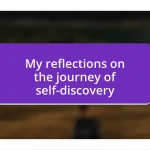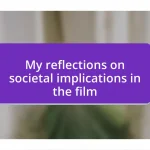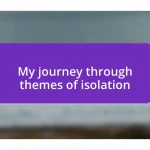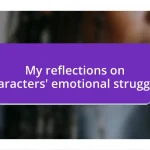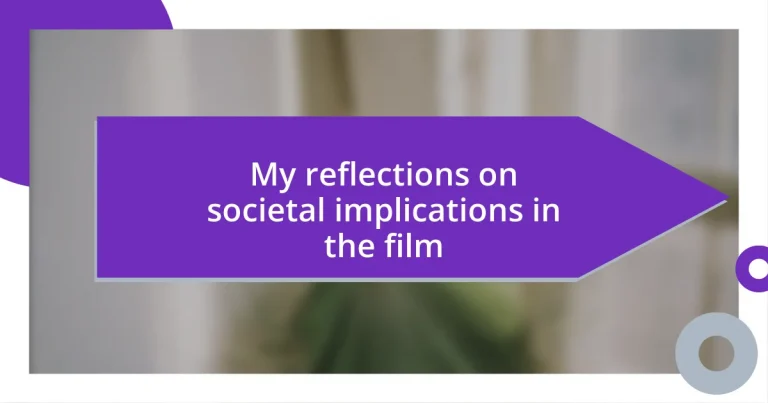Key takeaways:
- Thematic exploration in films, such as identity, justice, and love, prompts viewers to reflect on their own lives and societal issues.
- Influential films like “12 Years a Slave,” “A Beautiful Mind,” and “The Social Network” provoke discussions on racial injustice, mental health, and the effects of social media.
- Filmmakers are encouraged to embrace diverse perspectives and utilize technology to create impactful narratives that resonate with audiences and inspire social change.
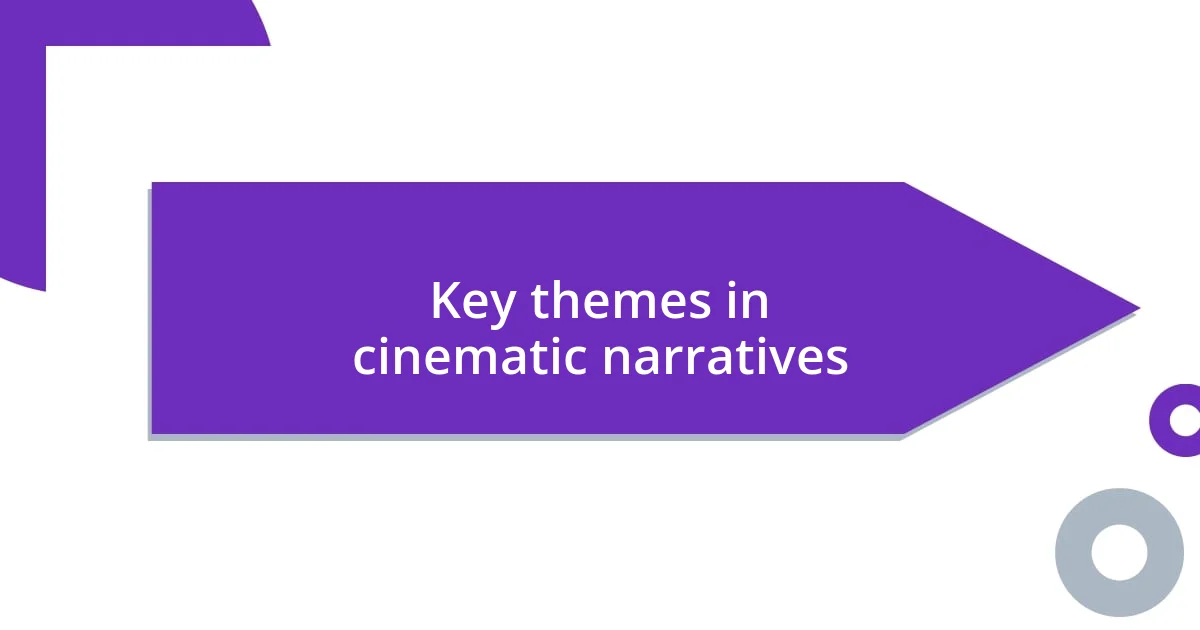
Key themes in cinematic narratives
When I think about key themes in cinematic narratives, I often reflect on the profound ability of film to address complex societal issues. Take, for example, the theme of identity; it’s fascinating how films invite us to explore who we are through the eyes of diverse characters. I remember watching a movie that beautifully portrayed a character grappling with their cultural heritage, and it made me question my own identity in our rapidly changing world.
Another theme that consistently captivates my attention is the struggle for justice. Films that depict characters fighting against oppressive systems resonate deeply with me, highlighting not just personal battles but collective movements for change. Have you ever felt a surge of hope when watching a protagonist defy the odds? I certainly have, and those narratives remind me that, while the fight may be daunting, it’s also an essential part of the human experience.
Then there’s the theme of love, which often acts as the driving force in many narratives. It’s remarkable how love can manifest in various forms—romantic, familial, or platonic—and how it shapes character choices and story arcs. I find myself emotionally invested in those moments where love transcends obstacles, making me ponder what lengths I would go to for the people I cherish in my own life.
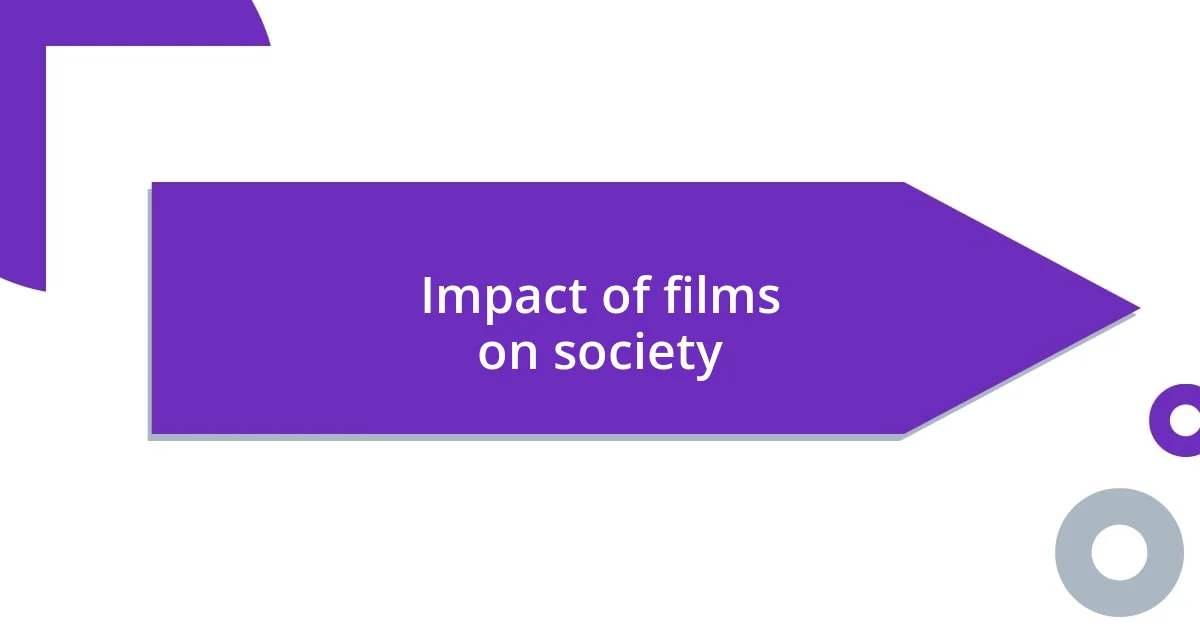
Impact of films on society
Films have a tremendous impact on society by shaping our perceptions and inspiring action. I recall watching a documentary that unveiled systemic issues affecting marginalized communities. It was an eye-opener for me, shedding light on realities I had not fully acknowledged before. This experience made me realize how films can spark conversations and drive social change in powerful ways.
- They can challenge stereotypes and promote empathy, enabling viewers to see the world from another’s perspective.
- Films often reflect the zeitgeist, encapsulating the struggles and triumphs of a particular era, which can resonate through generations.
- They serve as a catalyst for dialogue, encouraging audiences to confront uncomfortable truths and advocate for reform.
Even now, when I think about films tackling issues like climate change or inequality, I feel a mixture of urgency and hope. Those stories compel me to take action within my own community, demonstrating the tangible influence cinema can wield in our lives.
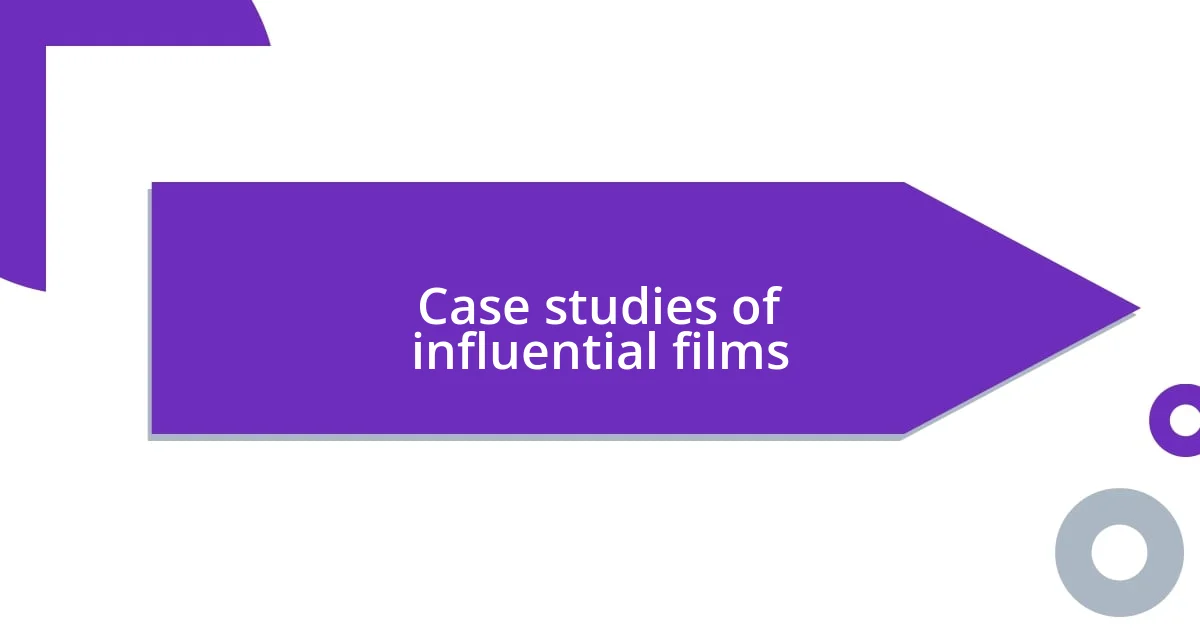
Case studies of influential films
When examining influential films, I can’t help but reflect on how they often serve as mirrors to societal issues. One film that truly struck a chord with me was “12 Years a Slave.” The raw portrayal of slavery’s brutality is difficult to watch, yet it’s essential viewing. Watching it for the first time left me emotionally drained, yet it sparked conversations with friends about racial injustice that we previously shied away from. This film, through its painful honesty, not only educated but also connected us in our shared discomfort and desire for a better understanding of our history.
Another powerful example is “A Beautiful Mind,” which tackles mental health issues in a society that historically marginalized these discussions. As I watched the protagonist, John Nash, navigate his struggles with schizophrenia, I felt a profound empathy for those grappling with similar challenges. It reminded me of a family member I know who experiences mental health issues. The film encouraged me to be more understanding and supportive, demonstrating how cinema can reshape our perceptions and foster compassion.
Then we have “The Social Network,” which delves into the complexities of friendship, ambition, and the digital age. It left me pondering about the implications of social media on our relationships. As someone who’s been active on platforms since my teenage years, I recognized the dual nature of connection and isolation that the film explores. It raised pertinent questions about authenticity and self-image in an age of online personas that I still contemplate long after the credits rolled.
| Film Title | Societal Issue Addressed |
|---|---|
| 12 Years a Slave | Racial injustice and slavery |
| A Beautiful Mind | Mental health awareness |
| The Social Network | Impacts of social media on relationships |
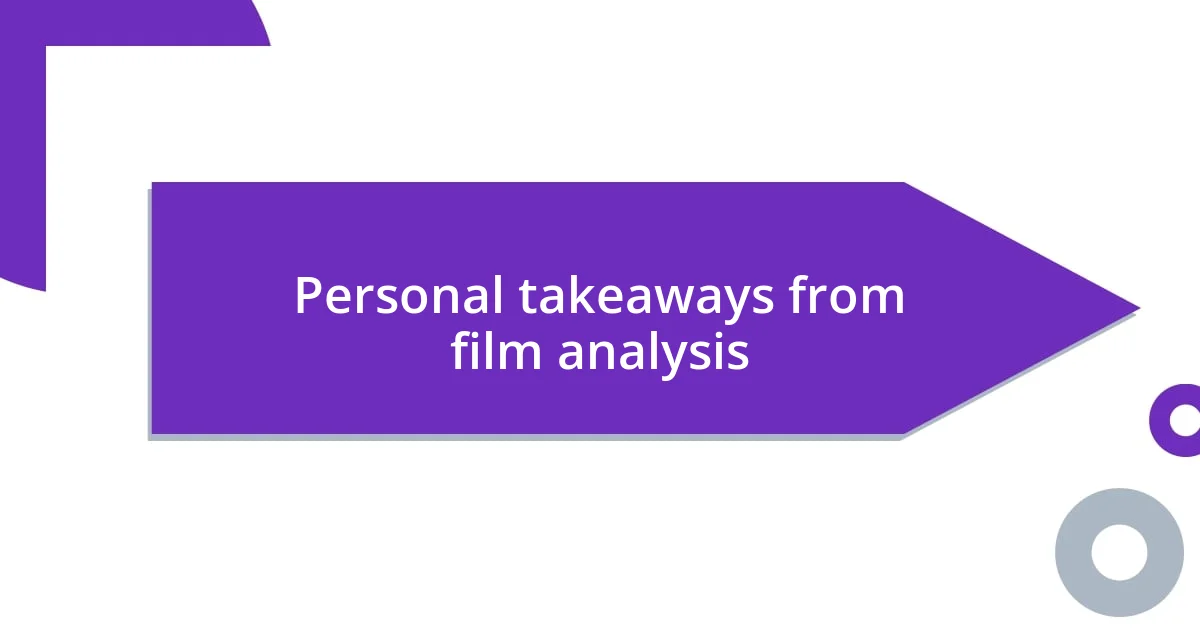
Personal takeaways from film analysis
When I think back on my experiences with film analysis, it often feels like peeling back layers of understanding. For example, watching “12 Years a Slave” not only educated me on historical injustices but also left me grappling with the emotions it evoked. I remember discussing the film with my colleagues, and realizing how deeply entrenched our societal narratives can be in the very fabric of cinema. It led me to ask myself: what stories are we still afraid to tell, and why?
Another significant takeaway for me is how films can serve as a lens through which we examine our own biases. After seeing “A Beautiful Mind,” I found myself reflecting on my perceptions of mental health. I was surprised at how a fictional portrayal made me reconsider my interactions with those facing similar challenges in real life. It instilled a sense of responsibility in me to foster more inclusive conversations about mental wellbeing in my circles. Have you ever found a film prompting you to change your viewpoint on an important issue?
Lastly, with films like “The Social Network,” I’ve come to appreciate the complex dance between connection and isolation that technology brings. I often ponder how social media has reshaped my friendships and overall communication. The film pushed me to evaluate my online behaviors—do we truly foster connections, or are we merely curating digital personas? This introspection has sparked valuable discussions with friends about our collective digital landscape. It’s fascinating how films can provoke such deep reflections, isn’t it?
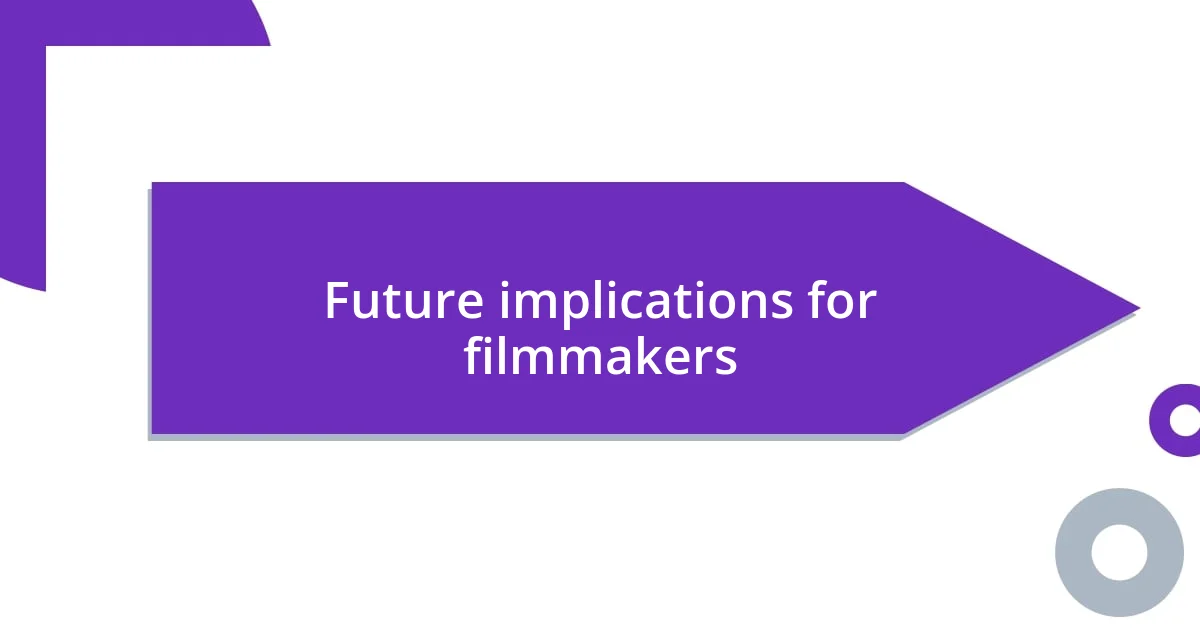
Future implications for filmmakers
Considering the evolving landscape of cinema, filmmakers must recognize the vital role they play in shaping societal narratives. It’s clear that audiences are craving films that not only entertain but also provoke thought and dialogue. I recall feeling inspired after watching a recent indie film that tackled climate change in a uniquely personal way. It made me wonder—how can future filmmakers explore pressing issues more creatively to engage their viewers emotionally while spurring action?
As I reflect on these trends, I see a growing need for filmmakers to embrace intersectionality in their storytelling. By weaving together diverse perspectives, they can create richer narratives that resonate with a broader audience. For example, think about a film that highlights the experiences of marginalized communities while addressing universal themes of love and resilience. Isn’t that a powerful way to foster empathy and understanding in a fragmented world?
Moreover, the impact of technology on filmmaking cannot be overlooked. The rise of streaming platforms has shifted how we consume films, leading to more niche content being produced. From my perspective, filmmakers should seize this opportunity to experiment and explore unconventional formats. Imagine a series that marries virtual reality with storytelling to immerse the viewer fully in a narrative about social justice. How exciting could that be for the future of film?





